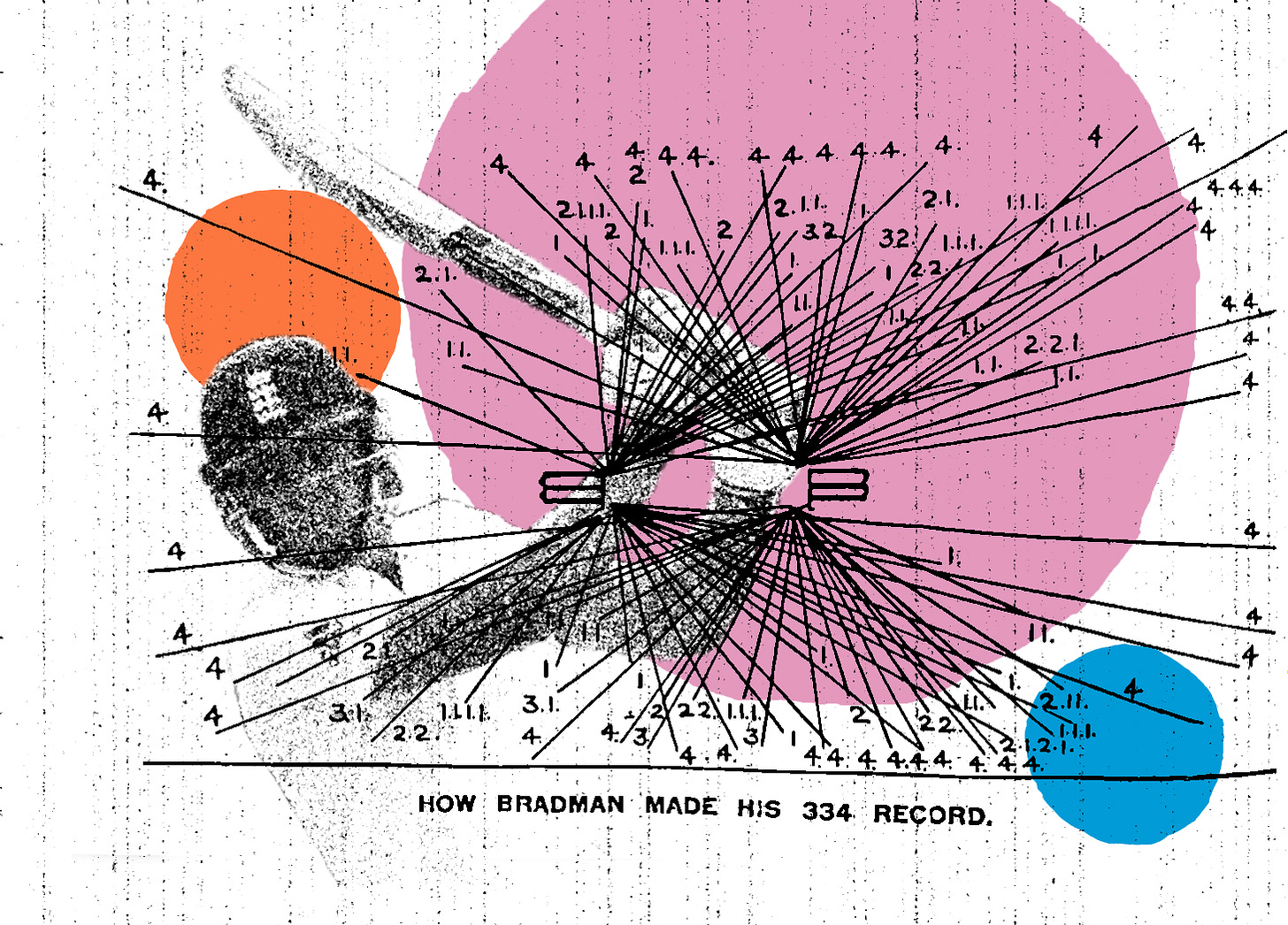
Jos Buttler has had a strange career, especially in Test cricket, where he was regarded at some stages as a vindication of Ed Smith’s percipience, yet averaged a modest 31 over a hundred Test innings, accumulated at a stodgy 54 per hundred deliveries. Though he is identified with the Morganisation of English white ball cricket, Buttball was in no sense an anticipation of Bazball.
Even in his limited-overs metier, Buttler goes through phases of batting diabolically. Those anchored feet, those groping hands, that self-closing bat face, that woozy head: he looks like someone who has wandered in from another game and been gifted a bat in a contest. And then, with one bound, he is free.
That bound, or that ball, was the first Buttler faced on Saturday night in his hundredth Indian Premier League match, for Rajasthan Royals against Royal Challenger Bangalore. Buttler had been a cipher in the T20 World Cup; he hadn’t made a fifty in more than two months, or an IPL score of significance in almost a year. Five ducks in his last fourteen hits: the last Royal Buttler to prove so unimpressive was Paul Burrell.
RCB v RR began with a banquet of shots from Virat Kohli, such as to leave the watcher feeling thoroughly replete. I mean, how good was that foot movement? Kohli was in position so early even he looked surprised at times. When the RCB then went out to defend 183, Reece Topley bowled an excellent first over, disposing of Yashasvi Jaiswal, who’s not sure whether to stick or twist at the moment. Premeditation is like a superpower when it comes off, kryptonite when it doesn’t.
For a description of the last ball of that over, the first delivery Buttler faced, Cricinfo’s narration will suffice: ‘Oooooh, past the inside edge, and that didn't miss the stumps by much! Bounced just over middle stump, in fact. Buttler defending from the crease, no footwork, and the ball swings in late and beats the inside edge.’ You can see it, can’t you? The hands looking for the ball, the body not following. Having battled to 10 off 10, Buttler took a couple of edgy boundaries off Yash Dayal, then, importantly, clipped a single to leg. That left him on strike when Mayank Dagar bowled an over of left-arm dross, and battling Buttler was boss again.
But there would have been none of Buttler’s 54-ball century had that delivery from Topley not cleared the stumps by a micron, and I’m not sure even those control stats beloved of the cricket’s modern mavens can do justice to the drama of batter’s first ball. It need not even matter how, whether it’s the soothing sensation of a solid defensive shot or the memento mori of a play-and-miss - everyone feels better for avoiding the ignominy of a golden duck. It allows time for the heartbeat to slow, the respiration to steady, the eyes to peel, and the mind to absorb the idea: I’m still standing. Afterwards, everything is possible in a way distinct from before one’s first ball.
Donald Bradman, let’s recall, arrived at Leeds on 11 July 1930 without picking up a bat for nine days, having taken some time off after a big innings at Lord’s to look round the capital, make friends, visit Wimbledon. He came to the crease at 11.38am, with Australia one for 2, to face Maurice Tate with tail up. We don’t have Cricinfo, but we do have the recollections of Tate: ‘The first ball I bowled him pitched on his middle stump and only missed the off peg by a coat of varnish. Everyone round the crowd gasped.’
Tate’s biographer Justin Parkinson makes the nice point that an increase to the size of the stumps mandated in county cricket the previous year, to improve the balance between bat and ball, had not been agreed for Test cricket by the Australian Board of Control. ‘The near-miss might have been a turning point in the Ashes, had the stumps been just a tad wider,’ says Parkinson in Then Came Massacre. ‘As it was, under the unreformed size stipulation, Bradman was still in.’
In Bradman stayed. By close of play, when it could as easily have been Bradman b Tate 0 as Buttler b Topley 0 on Saturday night, Bradman was 309, an unequalled first day score, en route to 334. The much-reproduced wagon wheel thereby excludes perhaps the most significant moment of all, because no score was generated.
One difference, perhaps. After his innings, Buttler reflected on his recent travails: ’I think however long you've played the game, you still have the anxiety and stress. The mind is a powerful thing. Sometimes it's not easy, you just got to tell yourself everything will be okay.’ In none of his autobiographical writings, by contrast, did Bradman mention his narrow escape. Luck? That was for other cricketers.






Phew. Just when I thought this would be a story about T20, which I find brain numbingly boring, it segues into a nice little tale about the Don. Great stuff.
Actually, if GH writes about T20, whether it be IPL, BB or some tinpot tournament somewhere, I’d probably read it, but from anyone else – No, thanks. Am I right to shun T20? I’ve never watched a game, never read about and so, consequently, never discuss it. Friends I played with in the days before T20 was a twinkle in anyone’s eye watch every BB game they can. Can anyone convince me to change my mind? I doubt even Gideon’s writings could do that, but today’s story could be a start
I guess there might have been other days where, if not for getting out early unluckily, they could have gone on and made a big score. It’s the nature of sport, in football they go on about hitting the post; Nunez did it 4 times in one match recently for Liverpool, never been ‘done’ before, but in reality he missed the goal. Same in cricket, Tate missed the wicket. Bradman was right to forget, or not mention, it.